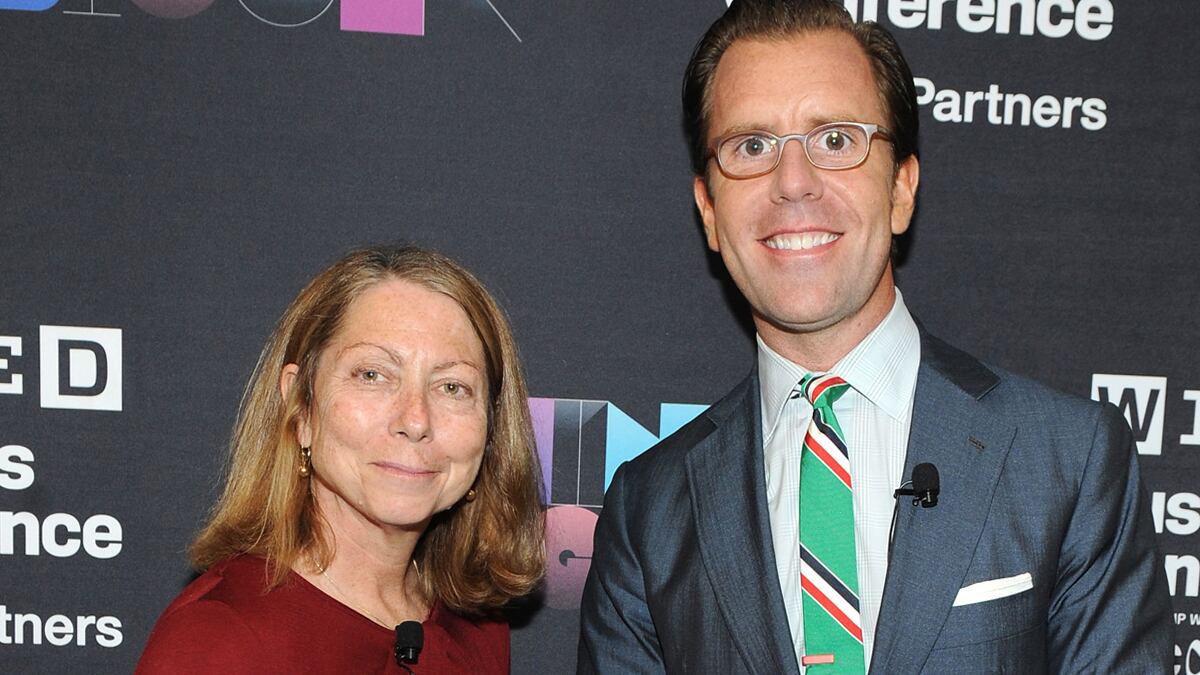If you've seen the graceful, groundbreaking multimedia package of “Snow Fall,” John Branch’s Pulitzer-prize-winning investigation of a deadly avalanche, you'll know why the The New York Times's newsroom has turned the story package into a verb. “Everyone wants to Snow Fall now,” said Executive Editor Jill Abramson (who calls herself "a total words person"), at Wired's Business Conference Tuesday afternoon.

Sitting down with Wired's Editor in Chief Scott Dadich, the Times's first female top editor started by delving into the company's April 15 Pulitzer celebration gone sour, as news of the Boston Marathon bombings spread through the wires. “I went from being joyous executive editor ... to right away clicking into running a big story,” she remembered. A few nights later, as the manhunt erupted, Abramson came into the newsroom at about 1:15 a.m. to ensure the sensitive coverage was up to the Times's standards.
Though she was careful not to compare the two directly, Abramson noted the differences between when she was covering the 9/11 attacks. Today, the digital flow requires constant vigilance. In 2001, by contrast, she was concerned mainly about the next day's paper. “It seems like a whole different news operation than the one we have now, but the standards are the same,” she said.
The leader of traditional media's backbone even touched upon the new kid on the block: BuzzFeed. Addressing earlier discussions with the site's founder and CEO, Jonah Peretti, Abramson speculated on the sponsored advertising concept that's inspired lively debate within the news industry, saying, “You should know it's ad, there shouldn't be a purposeful confusion.” But she rejected the notion that the industry is shifting in BuzzFeed's direction. “It's for the conference set; the buzzword of 2013's business model,” she said, laughing. “Sorry, I mean, Wired is obviously on the cutting edge.”
In terms of her historical role at the Times, Abramson is determined to become just one of the pack. “It's only worth being the first woman anything if at the point you stop being executive editor there are other women, hopefully lots of them, who are plausible candidates to be the second.”





